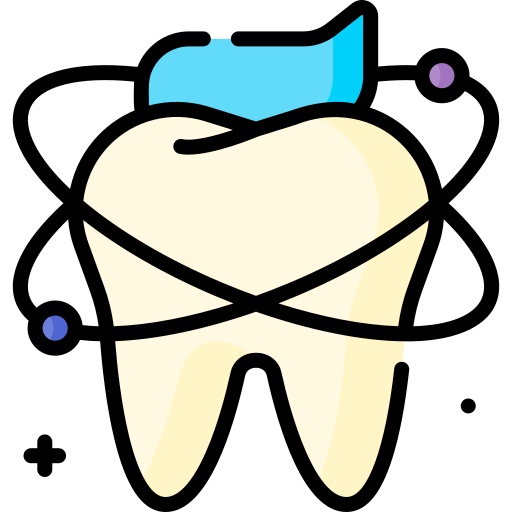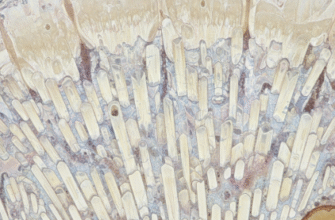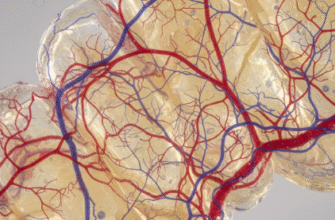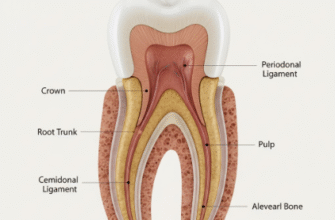Often overlooked, that clear liquid in your mouth does far more than just keep things moist. Saliva, a truly remarkable bodily fluid, is a cornerstone of good oral health. It’s an unsung hero, working tirelessly behind the scenes every second of every day. Without it, simple acts like speaking, tasting, and swallowing would become challenging, and our teeth and gums would be under constant threat. Let’s delve into the fascinating world of saliva and uncover its vital contributions to maintaining a healthy smile and overall well-being. It’s a biological marvel that deserves our appreciation and understanding.
The Unseen Guardian: What Saliva Does
This remarkable fluid is not merely water; it is a sophisticated concoction produced by several salivary glands strategically located in and around your oral cavity. The three major pairs of glands – the parotid (in the cheeks), submandibular (under the jaw), and sublingual (under the tongue) – along with hundreds of minor salivary glands scattered throughout the mouth lining, work in concert to secrete this complex fluid. But what exactly imbues saliva with such indispensable qualities for our oral environment?
The Great Lubricator and Facilitator
Imagine trying to articulate your thoughts with a mouth as dry as a desert, or attempting to swallow a piece of dry toast without a sip of water. It would be incredibly uncomfortable, if not downright difficult. Saliva acts as a natural, super-efficient lubricant. Its primary component is water, but it also contains specialized proteins called mucins. These mucins give saliva its slightly viscous, slippery quality, creating a protective film that coats all the oral tissues. This coating allows for the smooth, frictionless movement of your tongue and cheeks during speech, preventing irritation. When it comes to eating, saliva moistens food particles, making them easier to chew and to coalesce into a soft, manageable bolus. This bolus can then be swallowed safely and comfortably, gliding down the esophagus without causing abrasion or discomfort to the delicate lining of your mouth and throat. This lubrication extends to protecting dental restorations and even dentures, reducing wear and improving comfort.
Kickstarting the Digestive Symphony
The intricate process of digestion doesn’t patiently wait until food embarks on its journey to your stomach; it commences the very instant food crosses the threshold of your lips. Saliva is armed with powerful enzymes, the most notable of which is alpha-amylase (also commonly known as ptyalin). This enzyme immediately gets to work, initiating the breakdown of complex carbohydrates, specifically starches found in foods like bread, pasta, potatoes, and rice, into simpler sugars such as maltose and dextrin. This initial step of enzymatic digestion is crucial for ensuring that these carbohydrates are processed more efficiently further down the digestive tract. So, as you savor that bite of your favorite starchy food, remember that your saliva is already performing a vital chemical transformation, setting the stage for optimal nutrient absorption.
The Mighty Acid Neutralizer
Every time you indulge in a meal or sip a beverage, particularly those high in sugars or acidity (like citrus fruits or soda), the resident bacteria in your mouth have a feast. As these microorganisms metabolize these substances, they produce acidic byproducts. These acids are the primary antagonists in the story of tooth decay, as they possess the power to demineralize and erode the robust enamel surface of your teeth – the hardest substance in the human body. Here, saliva steps in as a valiant defender, showcasing its remarkable buffering capacity. It is rich in bicarbonate, phosphate, and protein buffers that actively neutralize these harmful acids. This action helps to swiftly restore the pH level within your mouth from an acidic danger zone back to a safer, more neutral state (around pH 6.2 to 7.6). This constant, vigilant battle against acidity is arguably one of saliva’s most critical protective functions, safeguarding your teeth from relentless acidic assaults throughout the day.
A Natural Tooth Repair and Fortification Service
Saliva’s role extends beyond merely neutralizing the acid attacks; it actively participates in the repair and fortification of tooth enamel when early damage has occurred. This incredible process is known as remineralization. Saliva is naturally supersaturated with essential minerals, primarily calcium and phosphate ions, which are the fundamental building blocks of tooth enamel and dentin. When acids temporarily leach these minerals from the tooth surface – a process called demineralization, which creates microscopic weak spots – saliva provides a fresh, concentrated supply of these very minerals. These ions are then redeposited onto the tooth structure, effectively ‘healing’ or reversing the earliest, non-cavitated stages of tooth decay. It is like having a tiny, dedicated, and continuous repair crew working diligently to keep your teeth strong and resilient. Fluoride, often present in saliva from toothpaste, water, or dental treatments, significantly enhances this remineralization process.
The Diligent Oral Cleanser
Think of saliva as your mouth’s own natural rinsing system. It plays a significant, often underappreciated, role in maintaining oral hygiene by mechanically washing away food particles, cellular debris, and even some bacteria that get lodged on and between your teeth and along the gumline after meals. By diligently clearing away these remnants, saliva significantly reduces the amount of “fuel” available for potentially harmful bacteria to consume and thrive on. This, in turn, limits the formation of dental plaque – that sticky biofilm of bacteria – and consequently lowers the risk of developing cavities and gum inflammation (gingivitis). The simple, almost unconscious act of swallowing, which happens many times a minute, aids in carrying these dislodged particles and excess saliva away from the oral cavity and into the digestive system, keeping the mouth relatively clean between brushings.
Guardian Against Unwanted Germs
Your mouth serves as a primary gateway to the rest of your body and is, therefore, constantly exposed to a vast array of microorganisms from the air you breathe, the food you eat, and the things you touch. Saliva is equipped with a sophisticated arsenal of antimicrobial components that help to control the oral microbial population and protect against infections. These include enzymes like lysozyme, which has the ability to break down the cell walls of certain bacteria, and lactoferrin, which cleverly binds to iron – an essential nutrient for many types of bacteria – thereby inhibiting their growth and proliferation. Saliva also contains specific antibodies, most notably secretory Immunoglobulin A (sIgA), which act like targeted missiles, preventing microbes from adhering to the surfaces of oral tissues and teeth, effectively neutralizing them before they can cause harm. Histatins, another group of salivary proteins, exhibit potent antifungal activity, particularly against species like Candida albicans.
The Key to Unlocking Taste
Have you ever paused to wonder how your brain distinguishes the delightful sweetness of a ripe mango from the tangy zest of a lemon, or the savory notes of a well-seasoned broth from the bitterness of dark chocolate? Saliva plays an absolutely indispensable role in this sensory experience. For your taste buds – those specialized clusters of cells located primarily on your tongue but also on the palate and other parts of your mouth – to detect different flavors, the chemical compounds responsible for those tastes need to be in a dissolved state. Saliva acts as a crucial solvent, dissolving these tastant molecules from solid and liquid foods. Once dissolved, these molecules are transported by saliva to the taste receptor cells, allowing them to bind and send signals to your brain, which then interprets them as specific tastes. Without sufficient saliva to perform this vital function, our ability to perceive and enjoy the full, nuanced spectrum of flavors in our food and drink would be severely compromised, leading to a bland and unexciting culinary experience.
When the Flow Slows: The Uncomfortable Impact of Dry Mouth
When the salivary glands fail to produce an adequate amount of saliva, a condition medically termed xerostomia, but more commonly known as dry mouth, can arise. This is far more than just a fleeting sensation of minor discomfort or thirst; persistent dry mouth can have profound and detrimental consequences for an individual’s oral health and overall quality of life. With insufficient saliva, all the vital protective and functional roles discussed earlier are significantly impaired, leaving the oral environment vulnerable.
Individuals grappling with the persistent dryness find that the mouth’s delicate balance is thrown into disarray. The risk of tooth decay escalates alarmingly, as acids produced by bacteria linger unchallenged on tooth surfaces for longer periods, and the natural repair processes of remineralization falter due to the lack of mineral-rich saliva. Gums may become more susceptible to inflammation, irritation, and disease. The simple acts of swallowing food (dysphagia) or articulating words (dysarthria), once effortless, can transform into daily struggles, often requiring frequent sips of water. An unwelcome companion in the form of persistent bad breath, or halitosis, often makes its presence known, as the cleansing action of saliva is diminished. The joy of tasting food can diminish significantly (dysgeusia), as saliva is crucial for flavor perception. Furthermore, the mouth’s natural defenses are lowered, leaving it vulnerable to opportunistic oral infections, such as candidiasis (oral thrush), a fungal overgrowth that can cause discomfort, burning sensations, and white patches in the mouth. The very tissues lining the mouth, normally supple and moist, can become parched, tender, easily chafed, and prone to developing sores or cracks, especially at the corners of the lips (angular cheilitis).
A persistent dry mouth is far more than a simple annoyance; it can significantly impact your quality of life and seriously compromise your oral health. If you consistently experience symptoms such as a sticky or dry feeling in the mouth, trouble chewing or swallowing, or a burning sensation, it is advisable to discuss these concerns with a dental professional. They can help explore potential contributing factors and suggest appropriate strategies for managing the condition. Prompt attention can be crucial in preventing more serious dental problems from developing.
Keeping the Saliva Flowing Naturally
While certain underlying causes of dry mouth may necessitate specific medical or dental interventions, there are several general lifestyle habits that can help support healthy saliva production for many individuals. Staying consistently well-hydrated is fundamental. Drinking plenty of plain water throughout the day not only helps to mechanically cleanse the mouth but also ensures that the body’s systems, including the salivary glands, have the necessary fluid to function optimally. Dehydration is a common, easily reversible cause of reduced saliva flow.
The physical act of chewing is a powerful natural stimulant for saliva production, particularly for the major salivary glands. Chewing food thoroughly not only aids in the initial stages of digestion but also sends signals to your brain that, in turn, instruct the salivary glands to increase their output. For this reason, chewing sugar-free gum can also be a helpful tactic to stimulate saliva flow, especially between meals. Gums containing xylitol are often recommended as xylitol itself may offer additional dental benefits by inhibiting certain bacteria. Fibrous foods that require more chewing, like raw vegetables, can also promote salivation.
Being mindful of substances that can contribute to dehydration or directly reduce saliva flow is also beneficial. Limiting the intake of excessive caffeine from coffee, tea, or energy drinks, and moderating alcohol consumption can make a difference, as both can have diuretic effects. Similarly, tobacco use is known to negatively impact salivary gland function. Breathing through your nose rather than your mouth whenever possible, especially during sleep, also helps to prevent the oral cavity from drying out excessively.
The Silent, Indispensable Sentinel of Your Smile
Saliva is, without a doubt, a truly multifaceted and extraordinary biological fluid, an integral and often underappreciated component of our body’s sophisticated natural defense system specifically tailored for the oral cavity. From its initial role in aiding the first steps of digestion and enabling clear speech to its crucial functions in protecting our teeth from the relentless onslaught of decay-causing acids and actively fighting off harmful microbes, its contributions are both diverse and absolutely vital for maintaining oral equilibrium.
It lubricates, it cleanses, it repairs, it defends, and it even enhances our sensory experiences, all without us usually giving its ceaseless work a second thought. Recognizing the profound importance of saliva serves to underscore the necessity of maintaining diligent oral hygiene practices, consuming a balanced diet, and prioritizing overall health, as these factors collectively support healthy salivary gland function. So, the next time you effortlessly enjoy a flavorful meal, articulate a sentence with ease, or simply feel that comfortable, natural moisture within your mouth, take a brief moment to appreciate this incredible, hardworking fluid. Saliva is unquestionably one of your best and most steadfast allies in the lifelong journey of preserving a healthy, functional, and happy smile.








